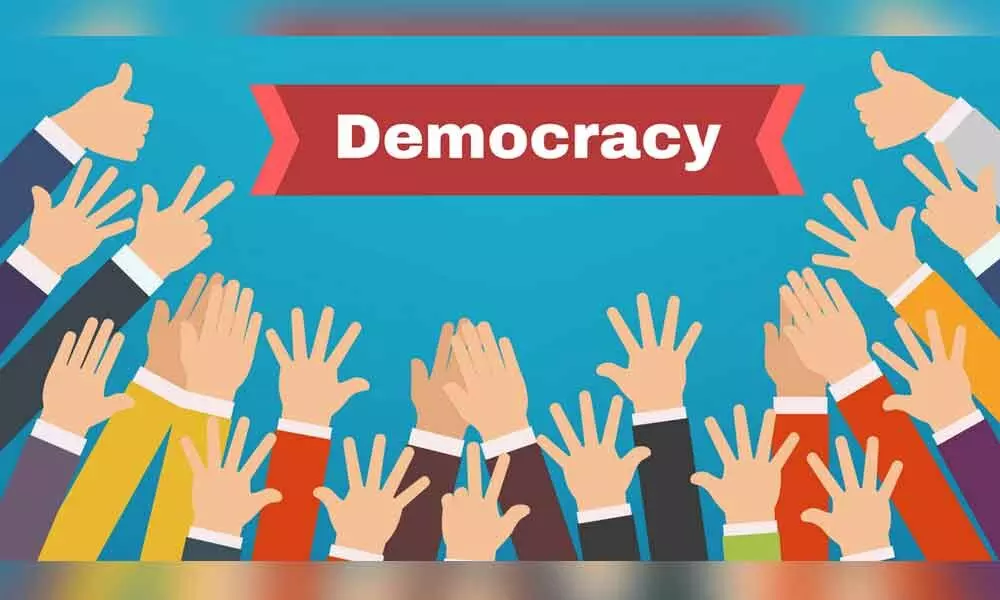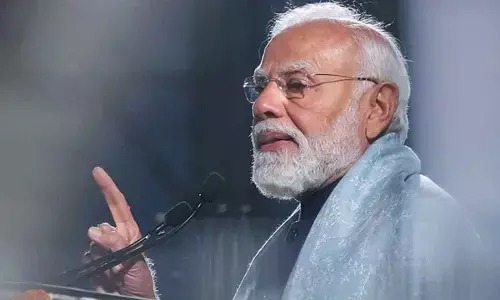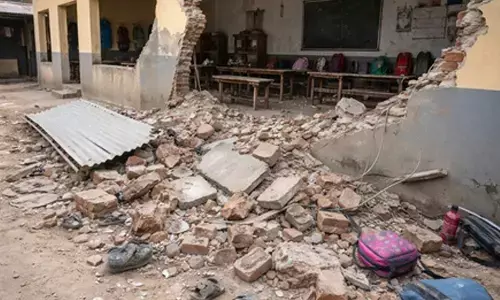Indian democracy undergoes sweeping changes

Indian democracy undergoes sweeping changes
In recent times many writers have expressed their opinions in printed media on how slowly our well laid democratic systems are taking new shape in all spheres
In recent times many writers have expressed their opinions in printed media on how slowly our well laid democratic systems are taking new shape in all spheres. None can abruptly deny these factual happenings. We observed that in local body elections in Andhra Pradesh were stuffed with corruption, skirmishes, vandalism, hooliganism, liquor distribution, etc. These incidents unfortunately are not uncommon from panchayat to parliament elections.
Is it called a democracy or klepto-demonocracy? The changing guards of the nation with mighty power are not able to handle this hard pressing ever dilating and despicable disaster. Protection of sovereignty is the primary activity of any nation and it should never slip into the hands of others as government is a trust as the community is the ultimate sovereign. Constitutional amendment term "secular" is also side tracked in many fold as casteism plays a predominant role in elections, education, employment, promotions, etc., thereby merit is bypassed to the utter chagrin of others.
We have resolved to constitute India into sovereign, socialist, secular and democratic republic and any subversion tantamounts to treacherous activity. Former President of India left a question to debate. That is "we have failed the constitution or constitution has failed us". So far the three pillars of our nation did not touch this issue as far as this writer knows. All union governments squatted immovably on the decades old demand for thirty percent reservations in people's representative houses but cries for it on women forums repeatedly.
Another vital skeptical question that strikes to mind is about majority votes in the elections. For example, suppose five parties contested. Votes polled are roughly sixty percent. Maximum votes polled to the winning party are twenty percent and balance percent is shared by the remaining four parties. Here the party polled twenty percent comes to power.
It means eighty percent people rejected this party. What is the logic here to call it a people's mandate? Number of new political parties also spoil the spirit of democratic values and norms. Political defections from one party to another are on the cards only for power and pelf as it is not a secret. Founding new parties with a view to set right obstreperous values is only for self interest. Self aggrandisement by every leader is the order of the day. All the new parties have faded out within short periods. Can we not adopt a two or three party system like in United Kingdom and United States of America which are also verdant democracies.
In the changing scenario of privatisation move of one hundred public sector units by the present ruling union government, raises strong opposition. The business of government is solely meant for establishing a welfare state. It is always better that some institutions should be under the administrative control of the government. It is axiomatic that the business of business is business alone for private entrepreneurs leaving behind public suffering by fixing the cost of products at their whims. How then it could be advantageous to the commoners?
Socialism is at stake as rich become richer and poor poorer. The so called political activists are capable of defining in their own fashion. In view of certain foregoings that have been witnessed in silent mode after assumption that Indian polity looks like a cluster of aristocracy, monarchy, and oligarchy. Ramsay Muir, a political thinker said " Socialism is a chameleon like creed.
It changes its colour according to its environment ". Another thinker Rapport said "If I am asked whether I am a socialist myself, I cannot but frankly reply - I do not know" People cannot fight longer time with the government. Karl Marx maxim "when superstructure of any society - social, legal, political institutions fail to adjust the rapid changes in the system of production and exchange, a crisis in the society is inevitable ". Management Science also stresses that nothing should be static and welcome for all dynamic changes.
Dr NSR Murthy, Secunderabad








